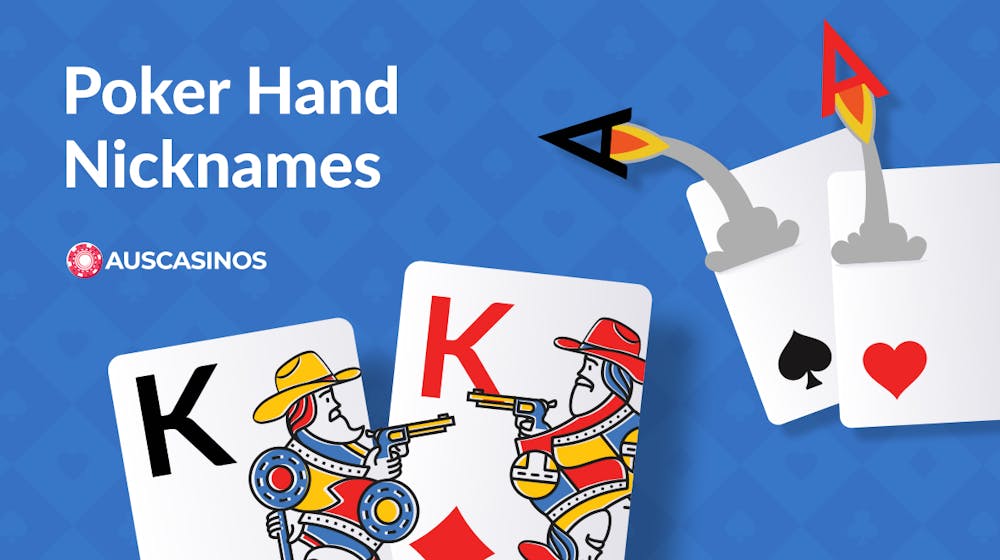How to Play Poker: A Complete Guide to Poker Rules


Poker is one of the world’s favourite card games, and it’s easier to learn than you think. In this guide, we’ll walk you through the essential rules that apply to all versions of poker, so you’ll be ready to dive into any game—from Texas Hold’em to Omaha.
In this guide, we’ll walk you through the core rules, poker hands, and essential tips that every beginner needs to know to master any of style of poker.
Poker Rules
In poker, the goal is simple: win by forming the best possible 5-card hand or convincing other players to fold. Each player aims to create a winning combination of 5 cards by using their own hand and, in some variations, community cards shared by all players.
A poker hand consists of five cards, and depending on the game variant, these hands can be formed in different ways:
- In Stud and Draw variants, your five cards will typically be the only ones you use to form a hand.
- In games like Texas Hold’em and Omaha, players use a combination of the cards in their hand and community cards (shared cards in the middle of the table) to form a five-card hand.
Community Cards:
In variants where community cards are used, such as Texas Hold’em, these cards are shared by all players to help them make their five-card hands. It doesn’t matter whether you use only your cards or combine them with community cards—poker hand rankings remain the same across all variations.
Poker Game Set Up
Blinds and antes are forced bets used to start the action in poker games, ensuring there’s always money in the pot.
Blinds: Typically used in Texas Hold’em and Omaha, two players post blinds before the cards are dealt. The small blind is placed by the player to the left of the dealer, and the big blind is posted by the next player. Blinds are fixed in limit games but can vary in no-limit and pot-limit games.
Antes: In games like 7-Card Stud and Razz, all players post an ante before the hand begins. In some tournaments, only the big blind posts the ante (Big Blind Ante format). Tournament blinds and antes increase over time, pushing the action.

Dealing the Hand
When choosing a poker game, it’s helpful to understand how the cards are dealt. Poker games can be divided into three main types based on card distribution: community card games, draw games, and face-up games. Each format offers a unique style of play and strategy.
Community Card Games (Texas Hold'em and Omaha)
Draw Games (5-Card Draw)
Stud Games (7-Card Stud, Razz)
Betting Actions Explained
Once the cards are dealt and blinds or antes are posted, players take turns making decisions. The available betting actions are:
- Check: If no one has placed a bet in the current round, you can "check" to pass the action to the next player without betting anything.
- Bet: If no one has bet yet, you can initiate the action by placing a wager.
- Call: If someone has already bet, you can "call" by matching the current bet amount to stay in the hand.
- Raise: After a bet has been made, you can increase the wager by "raising." All subsequent players must at least match your raise to stay in the hand.
- Fold: You can fold at any time, forfeiting your hand and any chance of winning the pot, but without losing any additional chips beyond what you've already contributed to the pot.
These actions rotate around the table in every betting round, influencing the game's strategy and flow. Understanding the significance of each action and knowing when to bet, check, raise, or fold is key to poker success.

How To Play Poker - Step by Step
- Starting the Game: Blinds or Antes
- Community Card Games (Hold'em, Omaha): Players post blinds (small and big blind).
- Draw and Stud: Players post antes (all players contribute).
- The Deal
- Community Card Games: Players receive hole cards (2 in Hold’em, 4 in Omaha).
- Draw: Players receive 5 face-down cards.
- Stud: Players receive 2 face-down cards and 1 face-up card.
- First Betting Round
- All Games: A round of betting takes place after the initial deal.
- Additional Cards (if applicable)
- Community Card Games:
- Flop: 3 community cards dealt face-up.
- Turn: 1 more community card.
- River: Final community card.
- Draw: Players can discard and replace 1-3 cards.
- Stud:
- Fourth, Fifth, Sixth Street: Players receive additional face-up cards.
- Seventh Street: Final face-down card dealt.
- Community Card Games:
- Final Betting Round
- After all cards are dealt, a final round of betting occurs.
- Showdown
- Players reveal hands; the best 5-card hand wins.
Poker Hand Rankings
In poker, hand rankings determine which player wins a hand based on the strength of their five-card combination. Whether you’re playing Texas Hold’em, Omaha, or Stud, the hierarchy remains consistent across most variants. Here are the poker hands ranked from highest to lowest:

Table positions

In poker, where you sit at the table can make all the difference. Each poker position offers its own strategic advantages and challenges, so understanding how to play from these spots is key to improving your game.
- Under the Gun (UTG): First to act in early position, so you need to play strong hands cautiously.
- Middle Position (MP): Acts after early players, giving some insight but still needing caution.
- Cutoff (CO): One seat before the dealer, often a good spot for aggressive play.
- Button (BTN): The dealer position, best seat at the table because you act last on every betting round after the flop.
- Small Blind (SB): Forced bet to the left of the button, acts first post-flop but is at a positional disadvantage.
- Big Blind (BB): Larger forced bet, also acts early post-flop but can defend against raises.
Does Position Matter in Every Poker Game?
- Hold'em and Omaha: Position is critical in community card games like Texas Hold’em and Omaha because acting last allows you to see other players’ moves and bet more strategically.
- Stud Games: In Stud games, while there are no blinds, position is still important, but it’s more fluid. The player with the highest or lowest face-up card (depending on the variant) typically acts first.
- Draw Games: Position has less impact in draw games, where most decisions are based on private hands, but acting later still provides an advantage in gauging opponents' behavior.
Understanding Poker Betting Limits and Structures
Different betting structures in poker control how much a player can bet, typically you will choose poker games with one of the following betting structures:
- No-Limit: Players can bet any amount, including all their chips, at any time.
Example: In a $1/$2 game, you can bet anywhere from $2 to your entire stack. - Pot-Limit: The maximum bet is equal to the current size of the pot.
Example: If the pot is $20, the most you can bet is $20. - Fixed-Limit: Betting amounts are fixed and predetermined for each round.
Example: In a $2/$4 game, you can only bet $2 in early rounds and $4 in later rounds.
Why Bet?
- Build the Pot: Bet with strong hands to grow the pot.
- Protect Your Hand: Force weak hands to fold and reduce opponents.
- Bluff: Make others think you have a stronger hand.
When to Bet?
- Value Bet: Bet when you believe you have the best hand.
- Bluff: Bet to scare opponents into folding weaker hands.
- C-Bet: Bet after the flop, even if your hand didn't improve, to keep pressure on opponents.
How Much to Bet?
- Pot Control: Small bets to manage risk.
- Big Bets: Large bets to apply pressure or when you're confident.
- Bet Sizing: Bet between half and the full pot depending on your strategy.
Blinds and Antes in Poker
Blinds
Fixed-Limit Games: The small blind and big blind amounts are fixed. For example, in a $2/$4 fixed-limit game, the small blind is typically $1, and the big blind is $2.
No-Limit Games: The blinds stay the same, but players can bet any amount up to their full stack. For instance, in a $1/$2 no-limit game, players can raise as much as they want, up to all their chips.
Pot-Limit Games: The blinds are fixed, but bets and raises are limited to the current size of the pot. If the pot is $20, the maximum raise is $20.
Antes
Standard Ante: In games like 7-Card Stud or Razz, all players post an equal ante before the hand begins. This amount is typically small compared to the minimum bet.
Big Blind Ante (Tournament Format): In some modern tournaments, only the big blind posts an ante, which covers for all players at the table. This speeds up the game by reducing the number of forced bets each round.
Increasing Blinds/Antes: In poker tournaments, both blinds and antes increase over time to ensure faster gameplay and force more action.
| Poker Variant | Blinds | Antes |
|---|---|---|
| Texas Hold'em | Yes (Small and Big Blinds) | No |
| Omaha | Yes (Small and Big Blinds) | No |
| 5-Card Draw | No | Yes (Players post antes) |
| 7-Card Stud | No | Yes (Players post antes) |
| Razz | No | Yes (Players post antes) |
Poker Strategy for Beginners
Getting the basics of poker strategy is key to improving your game. Here’s a quick look at some core concepts to help you get started. Be sure to check out our in-depth poker strategy and expert tips.
- Tight vs. Loose Play: Beginners should play tight, which means sticking to stronger hands and folding weaker ones. This minimizes risk while you learn the ropes. Loose play involves playing more hands but can be risky when you’re just starting out.
- Table Position: Your position at the table affects how you should play. Being in a late position is ideal because you can observe others’ moves before acting. Early positions require more caution.
- Best Starting Hands: Focus on strong hands like pocket aces or ace-king suited. Avoid weaker hands to limit unnecessary risk.
- Common Mistakes to Avoid: Don’t overplay weak hands, ignore table position, or make inconsistent bets that give away the strength of your hand.
5 Easiest Poker Variants For Beginners
When you're new to poker, starting with an easier variant can help build your confidence and skills. Here’s a quick ranking of the easiest poker games to pick up, based on simplicity and learning curve:
| Poker Variant | Why It's Easy |
|---|---|
| Texas Hold'em | Most popular game, easy to learn basic rules, with only 2 hole cards to manage. |
| 5-Card Draw | Simple structure: each player gets 5 cards and can replace up to 3; no community cards. |
| Omaha | Similar to Hold'em but with 4 hole cards; slightly more complex but manageable. |
| 7-Card Stud | No community cards; straightforward, but requires attention to face-up cards. |
| Razz | Lowball variant where the lowest hand wins; simple concept but different strategy. |
Poker is an exciting game that combines skill, strategy, and a bit of luck. By understanding the basic rules, hand rankings, and key strategies, you’re already on your way to becoming a confident player. Whether you start with Texas Hold’em or explore other variants like Omaha or 5-Card Draw, the core principles remain the same: play smart, manage your bets, and learn from each hand.
As you gain experience, you’ll discover more advanced strategies and improve your gameplay. Now that you know the essentials, it’s time to dive in and enjoy the game!

Emily is our seasoned content writer. She writes easy to read and helpful game guides, so you can quickly understand the rules of each game and get some useful tips that can help boost your chances of winning.
Read more about the author








